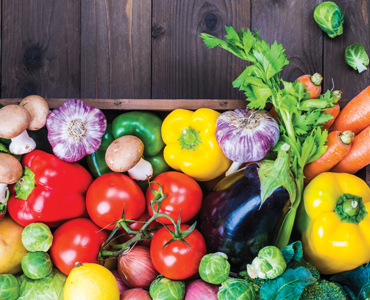
Tracking Progress on Canada’s Food Performance: How are we doing?
By Jean-Charles Le Vallée
Business Operations Exporting & Importing Food Safety Processing Regulation competitivenessThe Conference Board of Canada unveils a comparison of food performance by province

By Jean-Charles Le Vallée
Foodborne illness outbreaks and food recalls tend to grab media headlines and consumers’ attention – leaving some Canadians to question just how safe is our food. Canadians are also questioning the cost, health and availability of our food.
The good news for consumers is that Canada performs very well on aspects related to food safety, diets and food security compared to other peer countries, but shows a weaker performance in some key areas, namely industry prosperity and environmental sustainability.
Last year, the Conference Board produced an international food performance comparison of Canada’s food system to assess how the food system meets the needs of the population. The report card measured Canada’s performance against 16 OECD countries on five elements: industry prosperity, healthy foods and diets, food safety, food security and environmental sustainability. While Canada (along with Ireland) received the top grades in food safety, there is need for improvement, particularly in reporting on chemical risks in food consumption, conducting more frequent nutrition and dietary studies, traceability and radionuclide standards.
Compared to most of our peers, Canadians generally choose healthy foods, as we consume lower-than-average intake levels of salt and saturated fats and have a diverse diet. However, Canadians’ health is somewhat compromised by higher levels of diabetes and obesity. Moreover, Canadians bring home more food than they need and are comparable with other countries in terms of their knowledge and literacy about food.
When measured by affordability and price volatility, overall food availability on a national level is not at issue. However, there are localized problems of food access and prices, and at-risk populations (including indigenous people and single-parent households) continue to exist.
Canada does not perform as well in other areas. For example, Canada has among the highest rates of both food waste and food losses in the world, and ranks behind all other countries for rates of greenhouse gas and ammonia emissions.
Canada’s industrial strengths in the food sector are its resource endowments, capital available to farms, crop production, and economic viability. However, the Canadian industry falls short of other countries in measures such as food innovation, livestock production, and representation among leading global food companies.
This coming November, at the Conference Board’s 5th Annual Canadian Food & Drink Summit, we will unveil a comparison of food performance by province.
Conference Board research in 2013 on Canada’s domestic food performance found worsening obesity levels, fruit and vegetable intake, water quality, and returns on assets in agriculture. Looking into how Canada’s 10 provinces compare this year, for instance, we found that the highest provincial grocery sales per capita was in Newfoundland and Labrador, and that PEI has the highest per capita food manufacturing sales by province.
We hope you will attend the Summit. It will feature engaging sessions and an exciting lineup of leading food experts and experienced practitioners who will share best practices and insights with you on how to engage stakeholders and Canadians to take action, including on inter-provincial trade barriers in the spirits sector, challenges and opportunities in dairy processing, nutrition and wellness in the workplace, global commodity prices, food fraud, food blogging, and more.
The goal is to advance Canada’s food performance. Food affects our lives, health, jobs, environment, and economy. Ensuring that our food is of high-quality, affordable, healthy and safe to eat matters to every one of us.
You can also follow the launch of Canada’s Provincial Report Card at @CBoC_Food and #CBOCFood.
Jean-Charles Le Vallée, PhD, is associate director of the Centre for Food in Canada for The Conference Board of Canada.
Print this page